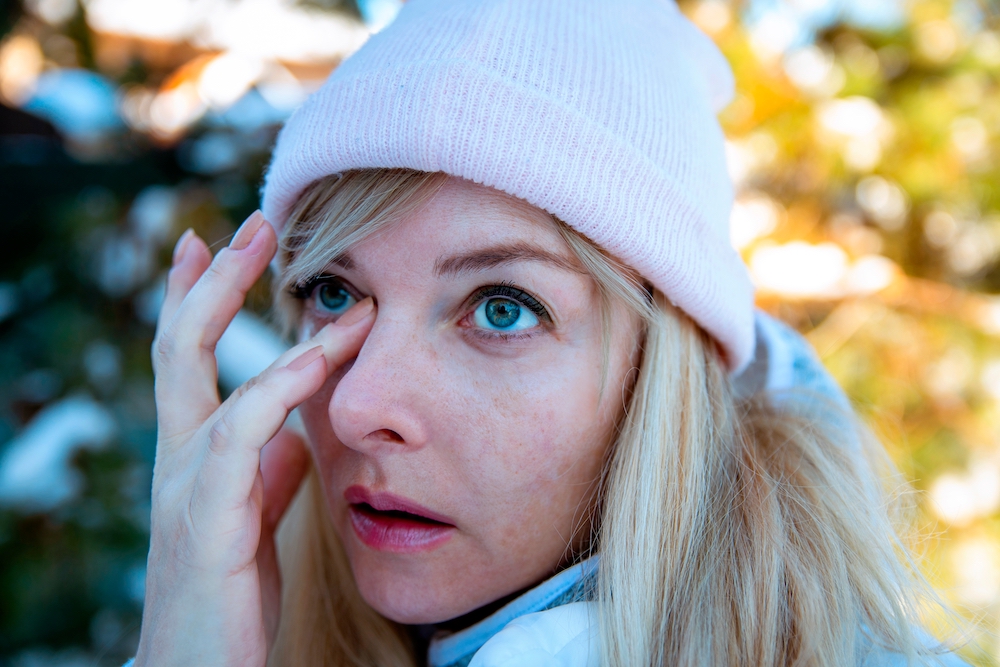
Everyone experiences dry eyes at some point due to allergies, wind, prolonged computer use, and other factors. For many, this is a temporary condition that soon resolves itself. For others, dry eyes are a chronic problem that occurs as the eyes fail to produce adequate tears. In some cases, the tears produced are of poor quality, leaving the eyes dry and uncomfortable.
Dry Eye Syndrome
About five million people suffer from dry eyes. Older individuals are more likely to develop the condition than younger ones. More women than men suffer from dry eyes. Those who wear contact lenses are more likely to experience dry eyes.
In most cases, the symptoms appear all year round but tend to worsen in winter when the air is cold and dry. During winter, less moisture in the outdoor air and indoor heating combine to reduce moisture. The cold weather can leave the eyes watery, itchy, and red.
Tear Film and Dry Eye
The eyelids have glands, known as meibomian glands, that produce the tears that help keep the eyes lubricated. The tears are made up of fatty oils, water, and mucus. The components work together to keep the eyes clear and healthy by protecting against infections.
Blocked glands and an imbalance in the tear composition can lead to increased tear evaporation or lack of moisture. It can lead to dry eye. Some treatments can help relieve the uncomfortable symptoms by unblocking the tear glands.
Symptoms of Dry Eye Syndrome
People who suffer from chronic dry eyes exhibit several symptoms. Cold winds blowing in the face and indoor heating can increase the symptoms of dry eye in cold weather. The symptoms include:
Blurry vision
Stinging eyes
A scratchy sensation
Red eyes
Light sensitivity
How to Relieve Dry Eyes in Winter
These are things you can do to reduce the symptoms of dry eye in winter.
Using a humidifier indoors
Using artificial tears regularly
Placing a warm compress over the eyes
Wearing sunglasses while outdoors
Taking regular breaks when using digital devices
Blinking more frequently
Changing your contacts or wearing eyeglasses during the cold season
If your condition is caused by medications that you may be taking, talk to your doctor about alternatives.
Treating Dry Eye
In some cases, dry eye can become severe, requiring treatment. Treating the underlying cause is the best way to reduce the symptoms. Treatment options include OTC eye drops, prescription medications, tear duct plugs, pulsed heat therapy, intense pulsed light therapy, and surgery. The eye doctor can help determine the best treatment option for you, depending on your condition. If you wear contacts, talk to your doctor about special custom lenses that help prevent dry eye.
Eating a healthy diet can help prevent dry eye. Foods rich in omega-3 fatty acids, such as salmon and tuna, are good for eye health. Healthy oils can help reduce inflammation in the eye or eyelids. You should also drink more water to keep your eyes hydrated during winter.
For more on whether dry eye worsens in the winter, call Eyes on You, PC, at our office in Portland, Oregon. Call (971) 252-7500 to book an appointment today.












